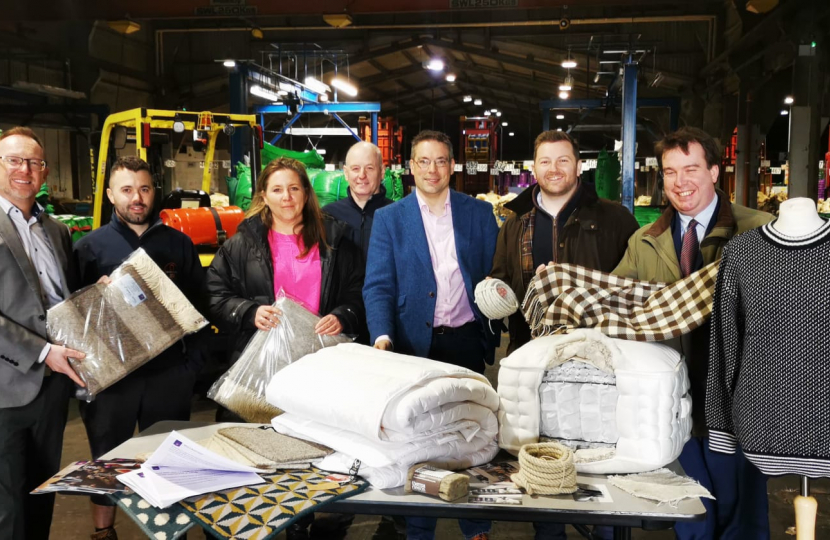
Russell George MS took colleagues to meet the British Wool Board in Newtown
The Member of the Senedd for Montgomeryshire met with representatives of the British Wool Board at their depot in Newtown last week to see how they work for members and export Welsh wool across the world.
Accompanying Mr George was Samuel Kurtz MS, Shadow Rural Affairs Minister and member of the Senedd’s Cross Party Group on Wool, and local MP Craig Williams.
They and Jacqui Pearce, of the Welsh Wool Alliance, were given a tour of the site by the Board’s Chief Executive, Andrew Hogley, and graders Barry Bellis and Peter Pennlington.
The British Wool Board is a public body but does not receive public funds. It is owned by around 35,000 sheep farmers across the UK. They collect, grade, marker, and sell British wool on behalf of producers on the international market.
At their Newtown site, and others across Wales, they accept wool from farmers and then they grade the wool to decide for what products they can be used, from clothes to mattresses to insulation.
Around 25% of British Wool is grown in Wales. The UK makes up 2% of the global wool market, with Wales accounting for a quarter of this. Wales once had 300 woollen mills, but now there are only three small-scale ventures.
Commenting, Russell George – Member of the Montgomeryshire – said:
“It was a delight to visit British Wool in Newtown to hear more about the role they play in the agricultural sector, particularly their work with farmers in Mid Wales.
“British wool is an excellent product of worldwide renowned and it is fantastic to see that Wales contributes more wool than any other of their regions across the UK.
“I am happy to support their calls for the Welsh Government to source Welsh wool for government projects when it comes to building, forestry, and transport infrastructure, in the same way it does for food.
“I also favour the need for product labelling to reflect the true provenance of the wool on the market as a Union Jack on the label does not mean a product is made from British wool – we do not want customers to have the wool pulled over their eyes.”

